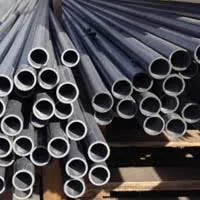
-
 Afrikaans
Afrikaans -
 Albanian
Albanian -
 Amharic
Amharic -
 Arabic
Arabic -
 Armenian
Armenian -
 Azerbaijani
Azerbaijani -
 Basque
Basque -
 Belarusian
Belarusian -
 Bengali
Bengali -
 Bosnian
Bosnian -
 Bulgarian
Bulgarian -
 Catalan
Catalan -
 Cebuano
Cebuano -
 China
China -
 China (Taiwan)
China (Taiwan) -
 Corsican
Corsican -
 Croatian
Croatian -
 Czech
Czech -
 Danish
Danish -
 Dutch
Dutch -
 English
English -
 Esperanto
Esperanto -
 Estonian
Estonian -
 Finnish
Finnish -
 French
French -
 Frisian
Frisian -
 Galician
Galician -
 Georgian
Georgian -
 German
German -
 Greek
Greek -
 Gujarati
Gujarati -
 Haitian Creole
Haitian Creole -
 hausa
hausa -
 hawaiian
hawaiian -
 Hebrew
Hebrew -
 Hindi
Hindi -
 Miao
Miao -
 Hungarian
Hungarian -
 Icelandic
Icelandic -
 igbo
igbo -
 Indonesian
Indonesian -
 irish
irish -
 Italian
Italian -
 Japanese
Japanese -
 Javanese
Javanese -
 Kannada
Kannada -
 kazakh
kazakh -
 Khmer
Khmer -
 Rwandese
Rwandese -
 Korean
Korean -
 Kurdish
Kurdish -
 Kyrgyz
Kyrgyz -
 Lao
Lao -
 Latin
Latin -
 Latvian
Latvian -
 Lithuanian
Lithuanian -
 Luxembourgish
Luxembourgish -
 Macedonian
Macedonian -
 Malgashi
Malgashi -
 Malay
Malay -
 Malayalam
Malayalam -
 Maltese
Maltese -
 Maori
Maori -
 Marathi
Marathi -
 Mongolian
Mongolian -
 Myanmar
Myanmar -
 Nepali
Nepali -
 Norwegian
Norwegian -
 Norwegian
Norwegian -
 Occitan
Occitan -
 Pashto
Pashto -
 Persian
Persian -
 Polish
Polish -
 Portuguese
Portuguese -
 Punjabi
Punjabi -
 Romanian
Romanian -
 Russian
Russian -
 Samoan
Samoan -
 Scottish Gaelic
Scottish Gaelic -
 Serbian
Serbian -
 Sesotho
Sesotho -
 Shona
Shona -
 Sindhi
Sindhi -
 Sinhala
Sinhala -
 Slovak
Slovak -
 Slovenian
Slovenian -
 Somali
Somali -
 Spanish
Spanish -
 Sundanese
Sundanese -
 Swahili
Swahili -
 Swedish
Swedish -
 Tagalog
Tagalog -
 Tajik
Tajik -
 Tamil
Tamil -
 Tatar
Tatar -
 Telugu
Telugu -
 Thai
Thai -
 Turkish
Turkish -
 Turkmen
Turkmen -
 Ukrainian
Ukrainian -
 Urdu
Urdu -
 Uighur
Uighur -
 Uzbek
Uzbek -
 Vietnamese
Vietnamese -
 Welsh
Welsh -
 Bantu
Bantu -
 Yiddish
Yiddish -
 Yoruba
Yoruba -
 Zulu
Zulu
Durable Fiberglass Solutions for Enhanced Corrosion Resistance and Longevity in Harsh Environments
Corrosion-Resistant Fiberglass Ensuring Enduring Durability
In our modern world, where infrastructure and materials face increasingly harsh conditions, the demand for durable, corrosion-resistant materials has never been higher. One such material that has gained prominence in various industries is corrosion-resistant fiberglass. This advanced composite material combines the robustness of fiberglass with special additives and treatments to enhance its resistance to corrosive environments, making it an ideal choice for applications ranging from construction to automotive.
Corrosion-resistant fiberglass is primarily made from glass fibers that are layered and embedded in a resin matrix. This unique composition provides the inherent strength of glass while the resin acts as a protective barrier against environmental factors that cause corrosion. Traditional materials such as steel and aluminum, while strong, often succumb to rust, oxidation, or chemical degradation when exposed to moisture, chemicals, or extreme weather conditions. In contrast, fiberglass offers superior resistance to these elements, making it an enduring choice for various applications.
One of the significant advantages of corrosion-resistant fiberglass is its lightweight nature. It is much lighter than metals without sacrificing strength. This characteristic is particularly valuable in industries like aerospace and automotive, where weight reduction can lead to increased fuel efficiency and improved performance. Furthermore, the lightweight nature of fiberglass simplifies handling and installation, reducing labor costs and time.
The versatility of corrosion-resistant fiberglass allows it to be molded into complex shapes and forms
. This adaptability makes it suitable for a wide range of applications, from marine vessels, where exposure to saltwater is a constant threat, to chemical processing plants that require materials that can withstand aggressive environments. The ability to fabricate intricate designs not only enhances functionality but also allows for aesthetic flexibility in architectural applications.'corrosion-resistant fiberglass for enduring durability.'

In addition to its physical properties, the longevity of corrosion-resistant fiberglass underscores its economic advantages. While the initial investment may be higher compared to traditional materials, the long-term savings associated with reduced maintenance, lower replacement costs, and less frequent repairs can significantly outweigh these initial expenses. Industries increasingly recognize that utilizing corrosion-resistant fiberglass can lead to improved operational efficiency and lower lifecycle costs.
Moreover, as environmental considerations become paramount in industrial practices, corrosion-resistant fiberglass offers an eco-friendly alternative to conventional materials. Its longevity means less frequent replacements, which reduces waste and lowers the environmental impact associated with manufacturing new materials. Additionally, many fiberglass products can be recycled, further contributing to sustainability efforts in industries that prioritize green practices.
As the technology behind fiberglass continues to evolve, innovations in resin formulations and manufacturing processes are expanding the capabilities and applications of corrosion-resistant fiberglass. For instance, advancements in resin chemistry have led to improved heat resistance, making fiberglass suitable for high-temperature environments. Furthermore, the development of hybrid composites that combine fiberglass with other advanced materials is pushing the boundaries of what is possible, leading to even more robust solutions.
In conclusion, corrosion-resistant fiberglass presents a compelling case for its use across various industries. Its unique combination of lightweight, durability, versatility, and cost-effectiveness makes it an ideal choice for applications that demand resilience in the face of corrosion. As businesses and industries continue to seek sustainable and long-lasting solutions, corrosion-resistant fiberglass stands out as a material that not only meets these demands but also provides a pathway towards a more resilient and environmentally conscious future. With ongoing research and technological advances, the potential for corrosion-resistant fiberglass is vast, promising enduring durability in our ever-changing world.









